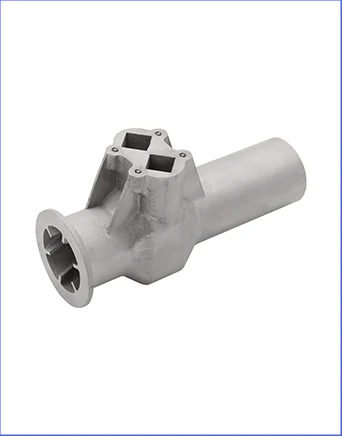Time to read: 6 min

As the automotive industry continues to evolve, the demand for lightweight, durable, and cost-effective components has never been higher. Die casting has emerged as a leading manufacturing technique, offering a viable solution for producing high-quality automotive parts. This guide delves into the world of die casting in the automotive industry, exploring the materials, processes, and market trends shaping the future of vehicle production.
The Evolution of Die Casting in Automotive Manufacturing
Die casting has become an indispensable process in the automotive industry, offering a path to lighter, stronger, and more fuel-efficient vehicles.
Why Die Casting is Gaining Momentum
The surge in die casting demand is attributed to several factors:
- Lightweight Components: With stringent fuel economy standards, aluminum die casting has become pivotal in manufacturing lightweight engine parts and wheels.
- Increased Automation: Advanced technology and automation have made die casting more efficient and productive.
- Sustainability: Die casting supports eco-friendly part production, with materials like aluminum being infinitely recyclable.
Common Die Casting Materials in the Automotive Industry
The choice of material in die casting is crucial, with zinc, aluminum, and magnesium being the most prevalent.
Zinc Die Casting
Known for its high accuracy and smooth finishes, zinc is ideal for parts like door lock housings and seat belt pulleys.
Aluminum Die Casting
Aluminum's lightweight nature and dimensional stability make it perfect for engine brackets, gearbox cases, and other high-temperature components.
Magnesium Die Casting
With its excellent strength-to-weight ratio, magnesium is instrumental in creating lightweight and heat-resistant automotive parts.
The Die Casting Process for Automotive Parts
Two primary die casting processes cater to the automotive industry's needs:
Hot Chamber Die Casting
Suitable for metals like zinc and magnesium, hot chamber die casting offers fast production rates and minimal material waste.
Cold Chamber Die Casting
Ideal for high-melting-point aluminum alloys, cold chamber die casting provides exceptional dimensional accuracy and component strength.
Applications of Die Casting in the Automotive Industry
Die casting has a wide range of applications, from engine parts and electronic covers to safety components like sensor and airbag housings.
Unofactory: Your Partner for Automotive Die Casting Services
Unofactory is at the forefront of providing high-quality die casting services, leveraging expert technicians and advanced technologies to deliver cost-effective solutions.
Market Trends in Automotive Die Casting
The automotive die casting market is projected to reach $20.31 billion by 2028, driven by the increasing demand for passenger cars and the need for eco-friendly parts.
Conclusion
Die casting has become a cornerstone of the automotive industry, enabling manufacturers to meet industry requirements while enhancing engine efficiency and vehicle performance.
For inquiries about automotive die casting or to start your project, contact Unofactory today.




